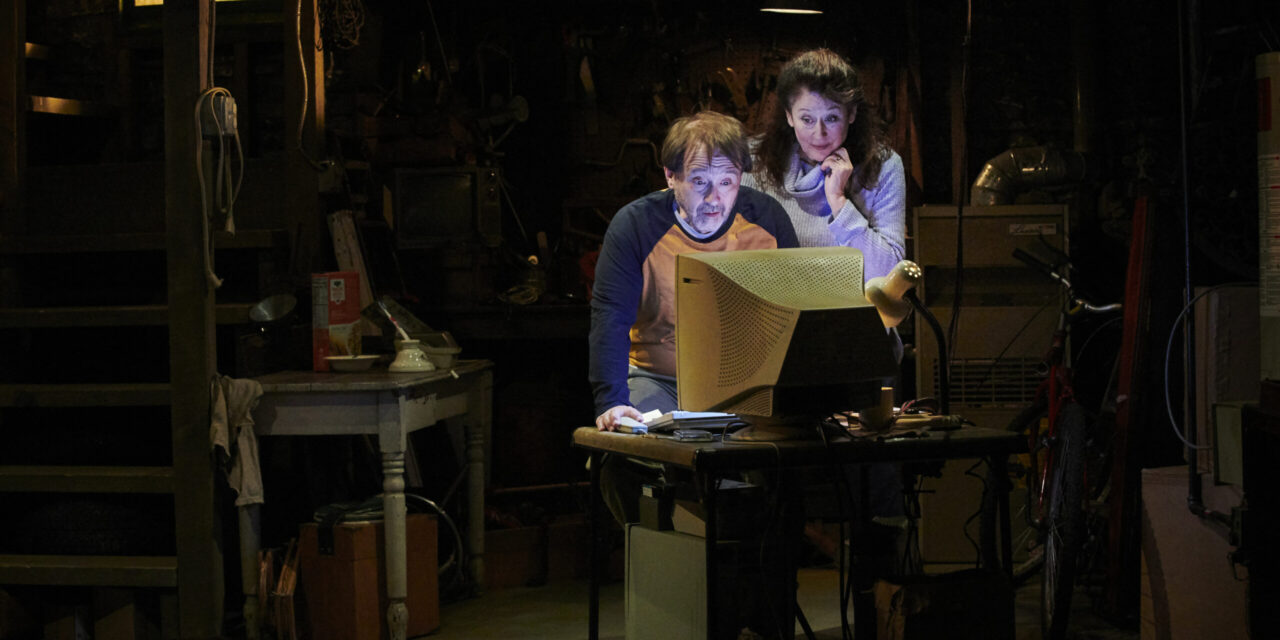Community, Leadership, Experimentation, Diversity, & Education
Pittsburgh Arts, Regional Theatre, New Work, Producing, Copyright, Labor Unions,
New Products, Coping Skills, J-O-Bs...
Theatre industry news, University & School of Drama Announcements, plus occasional course support for
Carnegie Mellon School of Drama Faculty, Staff, Students, and Alumni.
CMU School of Drama
Wednesday, January 22, 2020
"Downstairs" at City Theatre, Pittsburgh, PA
The Theatre Times: In Jungian psychology, the house symbolizes the mind, with the basement representing the deepest part of the subconciousness. As in the physical world, that psychic basement is a place crammed with all the “stuff” you can’t or won’t let go of – stuff you might need one day, or no longer need but aren’t ready to discard – along with all sorts of stuff you use regularly but don’t want to make space for “upstairs.”
Subscribe to:
Post Comments (Atom)

3 comments:
I would love to see this show! I feel like the overall plot takes a look at mental health from a new angle, especially surrounding older generations. It may be because I am in college and am constantly surrounded by talk about mental health, but I feel like most mental health outreach programs cater to younger generations. We never hear about the psychology of older people, and the ways in which they may be suffering. I absolutely love the reference to Jungian psychology and the ways in which our minds are like houses. Setting a play that navigates the basements of people’s minds in a common basement is genius and provoking. And, to echo what the article already brought to light, Tony Ferrieri’s set of a basement is jarringly accurate (this is coming from a person who never had a basement, but just trust me on this). Overall, I have so many curiosities and am dying to see this.
This play sounds incredibly emotionally tough to sit through content wise, purely because it is such a real issue that people go through. It makes for a very engaging story. The complexities and challenges of family life, being stuck between spouse and sibling (or parent) in these situations often feel insurmountable to the person in the middle. It is sad to see your own family members going through a difficult time, and it seems as though the character Gerry, Irene’s husband, did not feel the same kind of empathy as his wife. Perhaps each of the characters had demons they were not willing to address, and they escaped in different ways. This article talks about personal demons in relation to Jungian psychology and the title of the play, “Downstairs.” A basement is where you keep the stuff you don’t want to make space for “upstairs.” The implications of this are quite thought provoking in terms of the characters’ struggles and the actual living situation they are in. I will try to make time to see this play before it closes!
I appreciate how well thought through the setting seems to be with the story being told in the play. The idea of setting it in a basement, as to tie in with us putting our "demons" in a basement, and having it actually be called "Downstairs" is very on the nose, but really smart. I know often times we think that we have to come up with these very left-field, out of the box, avant garde ideas for the setting of plays. But truth is, when you read and analyze the play, many times the answer to where the setting should be is right in front of you and it may be best for the story telling to try to go along with that. If not, simply reimagine the setting to give it a fresh feeling, but with the same ideas and conveyance. I am very adamant on staying true to the story and telling the story through design, rather than trying to design off of random "genius" ideas. At the end of the day, the plot is the spine and that's what ties everything into a cohesive production. From the article, this seems like I very interesting show that's being told well- one that I would love to see.
Post a Comment